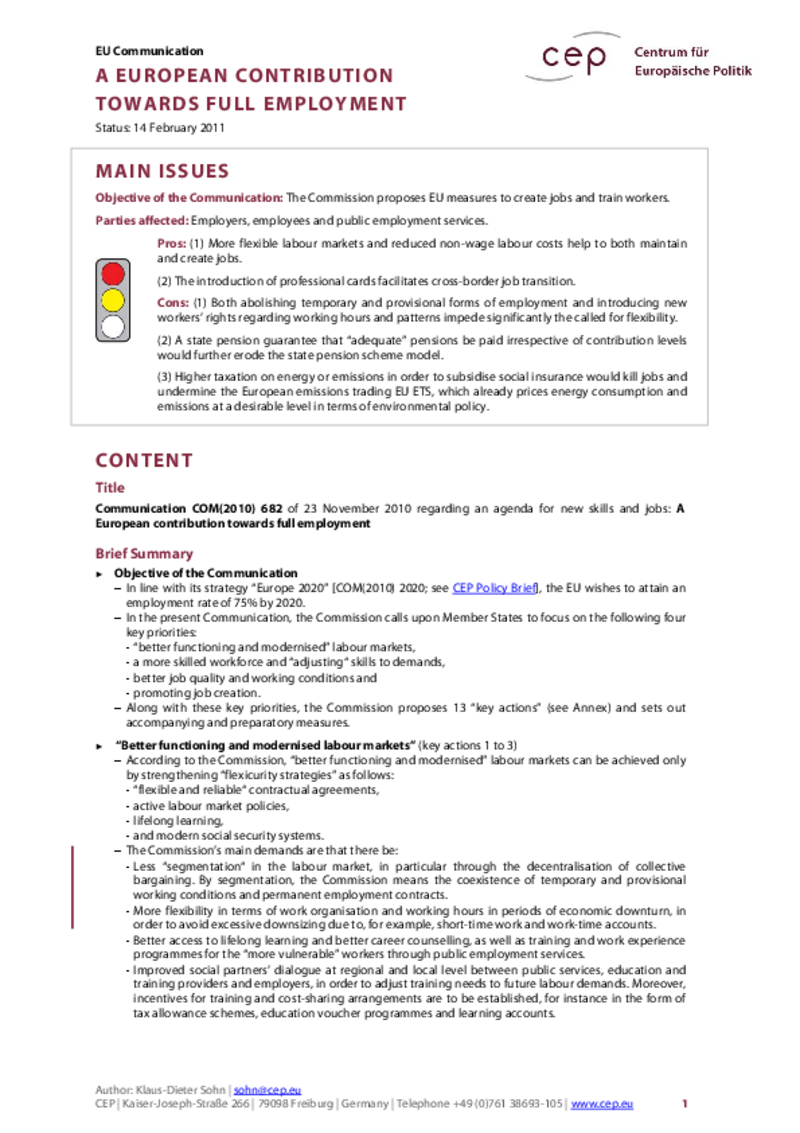
Employment & Social Affairs
A European Contribution towards full Employment (Communication)
cepPolicyBrief
The propagated higher flexibility of labour markets helps to maintain jobs. The proposal to reduce temporary and provisional forms of employment, which are crucial to flexibility, is therefore counterproductive. Ensuring “adequate and sustainable” pensions irrespective of the insurers’ pension-saving contributions further erodes the model of state pension schemes. The introduction of a professional card facilitates cross-border job transition. Both abolishing temporary and provisional forms of employment and introducing new workers’ rights regarding working hours and patterns impede significantly the called for flexibility.
The proposed reduction of non-wage labour costs creates jobs. However, such a positive effect is partially or wholly destroyed if the resulting revenue shortfalls in social insurances is compensated for by higher energy and emissions taxation. Moreover, it undermines the European emissions trading system, which already prices energy consumption and emissions at a desirable level in terms of environmental policy.
Download PDF
| A European Contribution towards full Employment COM(2010) 682 (publ. 05.20.2014) | 85 KB | Download | |
 | |||


